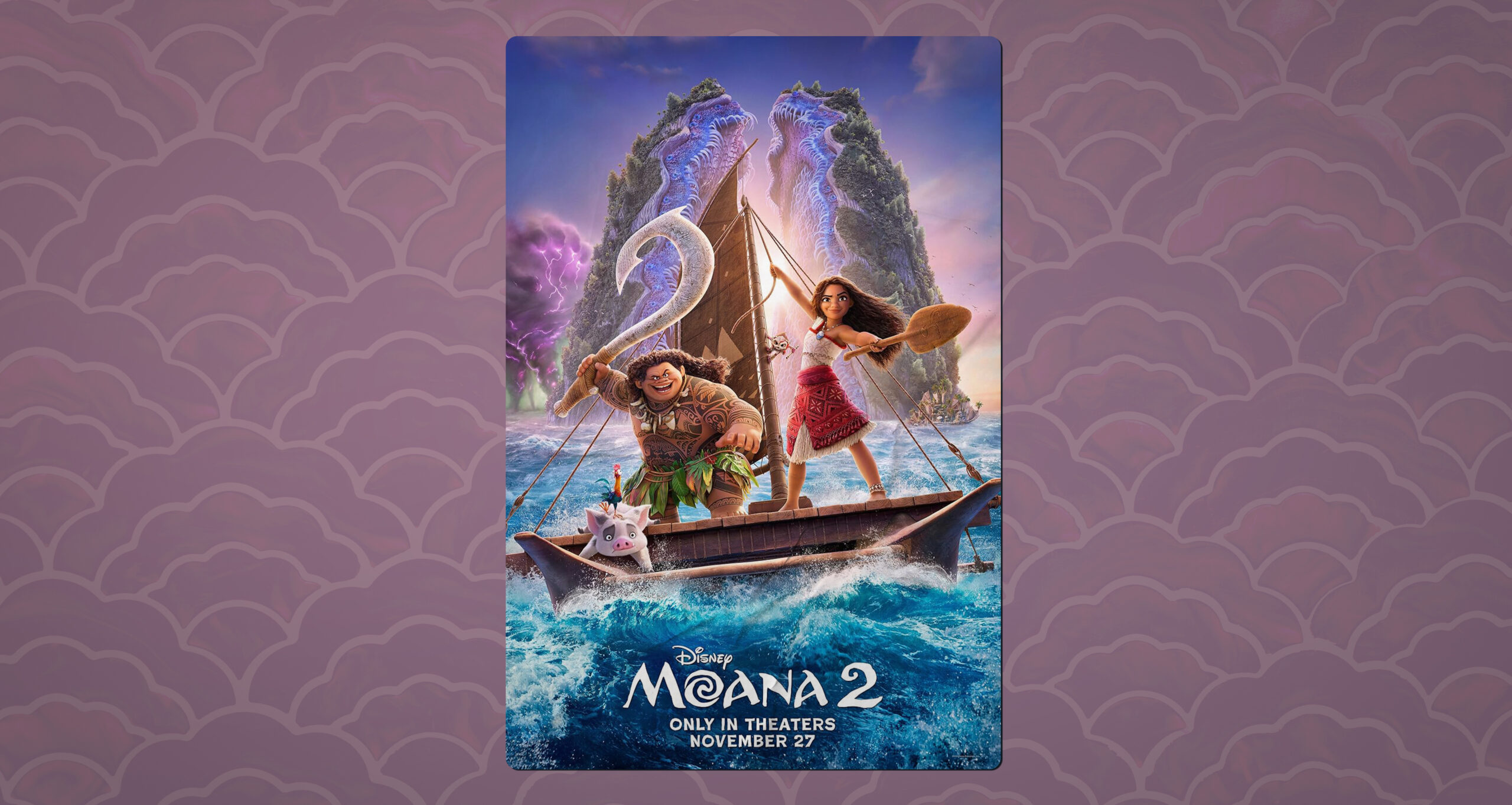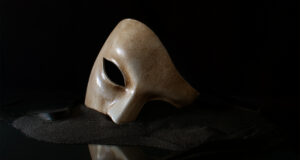What Moana can teach us about the Christian life (and how the sequel fails)
Published on October 15, 2025

Moana is Christian? I’ll let you decide.
Moana is torn between leading her people as the village chief, the role she was born into, and her desire to set sail on the waves. Inspired by legend, Moana goes beyond the reef to save her island by restoring the heart of Te Fiti with the help of the demigod Maui, who stole it.
Why is Moana beloved by a whole generation?
Moana is a delightful character: She’s honest about her emotions and true desires, devoted to her family, beautiful and kind, and never gives up in the face of adversity. The animation is gorgeously detailed, from Moana’s curls to the roaring waves inspired by Polynesian traditions. It also has plenty of catchy songs you’ll find yourself singing along to in true Disney fashion. But perhaps, Moana herself can teach us a thing or two about the spiritual life as well.
Maui, original sin, and Genesis
When Maui steals the heart of Te Fiti, it causes a rupture in creation — much like original sin. Darkness enters the ocean, monsters rise, and the waters become too dangerous to navigate. Moana’s people, once voyagers, abandon the sea and confine themselves to their island, consumed by the need to survive. They weave baskets, build their community, and forget their deeper identity. As Moana’s grandmother tells her, they’ve forgotten who they are — echoing how original sin fractured humanity’s relationship with God. Just as Jesus comes to restore that relationship, Moana is called to restore the heart and renew her people’s purpose.
Maui, meanwhile, embodies the effects of sin and concupiscence. He craves external validation, believing he must earn love through feats and praise. His theft from Te Fiti is rooted in insecurity. When Moana meets him, he’s boastful, self-centered, and quick to run when things get hard. His journey reflects the brokenness of pride and the struggle to accept grace without earning it.
The ocean and the divine
While Moana’s father admonishes her for pursuing a life on the ocean, she feels a deep calling to something more than her ordinary routine. She tries to follow her family’s expectations and prepare to be chief, but when her island begins to suffer, she senses the answer lies beyond the reef.
Though uncertain and full of self-doubt, Moana trusts that the ocean — representing the Holy Spirit — chose her for a reason. The ocean gently leads her, revealing the path one step at a time. Even when she doesn’t understand the plan or is unsure of how to accomplish what is being asked, she continues forward in faith.
Like the spiritual life, her journey is filled with trials — monster waves, lava demons, and inner battles of confusion and fear. Maui himself tells her she’s not enough and casts doubt on the ocean’s guidance. But through Moana’s kindness, receptivity, and perseverance, Maui is eventually transformed.
Moana doesn’t just believe — she acts. She learns to sail, stays up through the night to navigate, and confronts Maui when he falters. Her trust in the ocean is paired with discipline and boldness.
She also models discernment: listening to her inner call, staying open to grace, and moving forward without fear. Much as the saints accompany us in prayer, Moana carries the spirit of her grandmother, who offers wisdom, comfort, and strength along the way.
Like a true evangelist, Moana leads her people back to their identity as voyagers — through her conviction, courage, and example.
Princess or heroine?
When the film was first released in 2016, there was debate over whether Moana should be considered a Disney princess or rebranded as a Disney heroine. While Maui refers to Moana as a princess, she calls herself the daughter of the chief. Was this a nod to pre-monarchy Polynesian history — or a break from the traditional gender roles Disney princesses once embodied?
In a 2016 interview with CapitalBuzz, Auli‘i Cravalho called Moana a Disney heroine. Eight years later, with Moana 2, she refers to the role as that of a Disney princess. Today, Moana is firmly part of the Disney Princess lineup, but at the time of the original release, “heroine” was the more common label.
The goal was to move beyond the damsel-in-distress trope — which Moana clearly avoids — toward a brave leader guided by justice and peace. But can’t a princess be both? With or without a love interest, across cultures and narratives? (Looking at you, Pocahontas.)
On the Disney website, Moana is in the character spotlight alongside classics like Cinderella and Ariel. She may be more physically active and independent than her predecessors, but Moana still embodies timeless princess virtues: kindness, inner and outer beauty, courage, gentleness, and an open heart.
Moana 2: How the sequel falls short
When I asked my 10-year-old sister about Moana 2, she told me it was horrible and there were some bats. I hate to say she was right.
Moana 2 follows Moana and Maui as they set out with a small crew from Moana’s village to reclaim the lost island of Motufetu and reconnect with distant voyagers. Auli‘i Cravalho and Dwayne Johnson return in their roles, which is a welcome continuity; however, their strong performances can’t quite lift a sequel that doesn’t deliver.
Moana’s crew — a grumpy farmer, a literal-minded engineer, and a cheerful and timid historian — seems poised to challenge and shape her leadership. Their arcs go largely undeveloped, and instead of personal growth, we see a less confident Moana guided by an underdeveloped antagonist to break the very traditions she once revered. It’s a confusing shift that doesn’t quite align with the wisdom of her ancestors.
Moana’s crew were adorable in their own right, but were not developed enough to become beloved favorites. The film’s concept might have worked better as a series. The most emotionally resonant thread — Moana’s bond with her younger sister Simea — is sidelined, as Simea never joins the journey.
Much of Moana 2 rehashes the original: ocean battles, sailing, family themes, historical reverence, Maui’s witty one-liners — even the Kakamora return. While it aims to honor its predecessor, the film feels hesitant to take creative risks. There were emotional moments similar to the first movie, but they felt forced. The action-heavy story offers little moral and interior challenge beyond Moana’s self-doubt. In the end, no single plotline lands with the emotional weight or wonder of the original.



